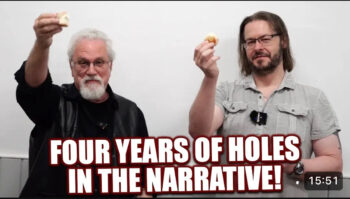
By Michael Ashcraft —
Happy “Holes in the Narrative” Day!
Unfamiliar with this new Christian observance? It marks the day when two notable Muslims—a scholar and a popular YouTuber—conceded that the Koran is not entirely inerrant. This momentous event occurred on June 8, 2020.
“It’s very clear that the standard narrative has holes in it,” declared Yasir Qadhi, who earned his PhD on the subject from Yale University. “The standard narrative does not answer some very pressing questions.”
This pronouncement was akin to striking dynamite at the very foundation of Islam, threatening to bring down the entire edifice. (Fail to see its significance for Islam? Watch Muslim leaders’ reactions.)
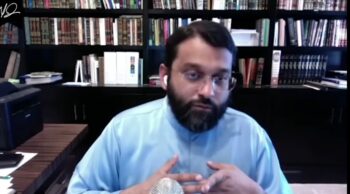
Critics of Islam were gobsmacked. Scholars had long known these things; Christian apologists had challenged Muslims over these matters. Yet never before had such eminent Muslims acknowledged them so openly.
Jay Smith and David Wood, whose life’s work is to evangelize Muslims, were overjoyed. Their opponents had, in effect, hoisted themselves on their own petard, prompting the declaration of a new Christian holiday: “Holes in the Narrative” Day. They celebrated the fourth anniversary on YouTube this June 8, complete with cake and colleagues singing a merry tune.
The question of scriptural inerrancy is critical to both Christianity and Islam. Yet, unlike Christianity, Islam’s scriptures have largely evaded scrutiny outside strictly Western academic circles. Christianity has, over more than a century, faced down the challenges of “higher criticism,” while Islam has yet to muster an adequate defense.
(Christianity holds that the Bible is inerrant in its original languages and seeks to reconstruct the original texts from numerous ancient manuscripts. This is a far cry from the Islamic insistence on a single, perfect, and unaltered Koran.)

“This is a very, very difficult issue,” Yasir Qadhi confessed. “The most advanced of our scholars are not quite fully certain how to solve all the unanswered issues raised by non-Muslim scholars. It is an awkward and difficult issue. When you go to academia, they bring issues that you know are true because they go to our own books. They view us as the ‘Emperor with no Clothes.’”
Indeed.
For decades, proponents of Islam have boasted of a single, perfect Koran, unmarred by any variance since it was recited by Mohammad, memorized by his followers, and written down in 652 by Uthman ibn Affan. In contrast, they derided the “corrupt” Bible with its many versions.
Muslims’ insistence on a perfect, uncontaminated Koran is enshrined even in their holy text: Surah 85:22, 10:15, 18:27, and 15:9. These verses leave no room for doubt—there can be only one Koran.
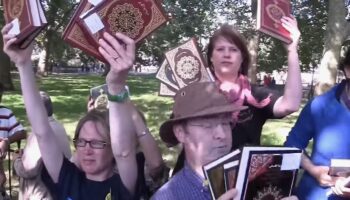
But Hatun Tash, a colleague of Jay Smith, unearthed 37 different versions of the Koran (initially finding 26). She procured copies from the 8th, 9th, and 10th centuries in Morocco, Jordan and Yemen.
Tash and Smith pored over these texts and discovered significant textual differences, of which they made laminated facsimiles. In June 2016, they took these to Speaker’s Corner in London, where they had debated Muslims for over a decade, holding up the different Korans for all to see.
“It caused a furor,” Smith recalls. Speaker’s Corner in Hyde Park had become a rallying point for radical Muslim immigrants advocating for Sharia Law. Some view it as a breeding ground for terrorism.
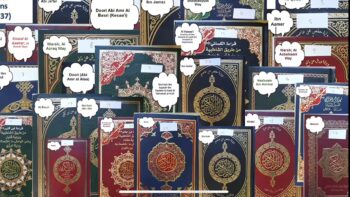
It was there that Jay Smith began his ministry of challenging Islamic beliefs.
Smith and Tash repeated their demonstration three times. During one, Mohammed Hijab, a YouTuber with 1.24 million subscribers who promotes Islam, approached the crowd and called them away.
“Don’t look at what they are showing,” he and his associates urged in Arabic. “Don’t listen to what they are saying. I’ll explain it to you.”
Hijab had no answers that day, but he sought them. He turned to Dr. Yasir Qadhi, the world’s foremost Muslim expert on the transmission and preservation of the Koran four years later.
On June 8, 2020, he interviewed Dr. Qadhi live on YouTube.

When Dr. David Wood watched the interview live, he immediately phoned his friend Dr. Jay Smith. “We were shocked by what happened,” Smith recalls.
If Mohammed Hijab sought to quell unsettling questions, he instead opened a Pandora’s box. Qadhi, who resides in Houston, acknowledged significant “holes in the narrative.”
“We grabbed that and made it a meme,” Jay Smith says. “There are 93,000 differences among these Korans. In one fell swoop, he destroyed the myth of the Koran’s preservation.”
The issue of different Korans has been debated among scholars, Dr. Qadhi says, for more than a millennium. Yet this debate had not previously troubled the average Muslim. Until now.
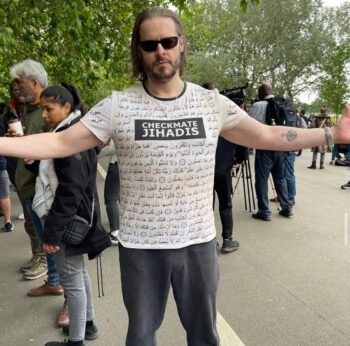
The interview was a serious setback for Islam. Initially, Mohammed Hijab edited out the most problematic parts of the video, but as comments piled up (“I’m leaving Islam and my blood is on your hands,” one wrote), he deleted it altogether, Smith says. He faced a huge blowback from his fellow Muslims.
But critics of Islam had recorded the video, and it remains available on YouTube.
The majority of the Muslim world (93%) recites and memorizes the Hafs Koran. Another 3% use the Warsh. These are the two most prevalent versions.
The Hafs became standard first in 1923 in Egypt. High school students were assigned verses to memorize, but discrepancies arose from different versions. Fuad I of Egypt commissioned a scholar to choose the “most authentic” version. Muḥammad ibn ‘Alī al-Ḥusaynī al-Ḥaddād selected the Hafs, favored by the Ottoman Empire.
The Fahd family in Saudi Arabia, observing Hafs’ success in Egypt, adopted it in 1985 for Saudi Arabia and all of Islam.
Just days after celebrating with Smith, David Wood went to Speaker’s Corner. If the nine Crusades were Christendom’s defense against encroaching Islam, then Speaker’s Corner represents The Tenth Crusade.
It was here that Hatun Tash was stabbed by a hooded and masked (presumably Muslim) assailant two years ago. The police never apprehended a suspect, and Tash resumed her work of street-preaching scholarly evidence against Islam.
Wood, a formidable debater, feared no such attack. Ever dramatic, he wore a T-shirt emblazoned with Koranic verses, declaring “Checkmate, jihadists.” Those who revere the Koran could not stab it, he said. Wood called his shirt “armor.”
To learn more about a personal relationship with Jesus, click here.
Related articles: Mrs. Apostate converts to Christ, the world’s most Muslim nation Indonesia is losing to Christianity, Queers for Palestine?, Nagmeh Panahi, Jay Smith, David Wood.
About these writer: Michael Ashcraft pastors a church in the San Fernando Valley of Los Angeles and outreaches in Pakistan.




[…] articles: 37 Korans: There are holes in the narrative, Mrs. Apostate converts to Christ, the world’s most Muslim […]
[…] articles: 37 Korans, Mrs. Apostate , Indonesia, Queers for Palestine?, Nagmeh Panahi, Hatun Tash, David […]
[…] articles: 37 Korans: There are holes in the narrative, Mrs. Apostate converts to Christ, the world’s most Muslim […]
[…] articles: 37 Korans: There are holes in the narrative, Mrs. Apostate converts to Christ, the world’s most Muslim […]
[…] 37 Korans prove the Koran has NOT been perfectly preserved […]
[…] 37 Korans prove the Koran has NOT been perfectly preserved […]
[…] 37 Korans prove the Koran has NOT been perfectly preserved […]
[…] 37 Korans prove the Koran has NOT been perfectly preserved […]
Comments are closed.